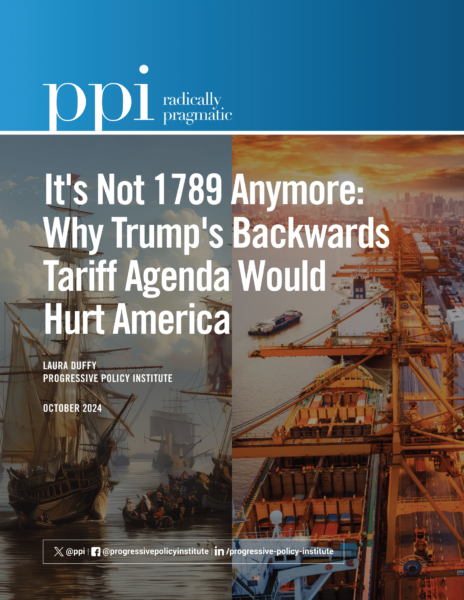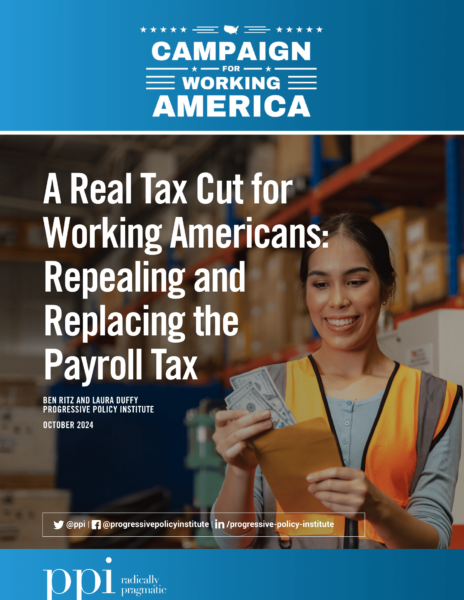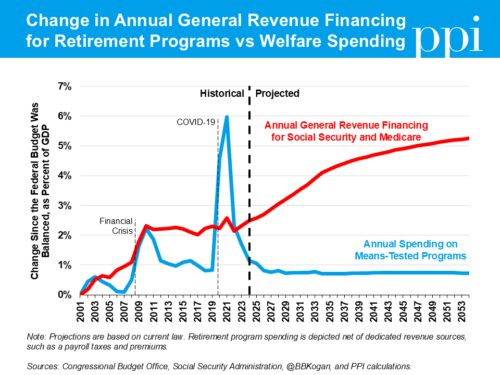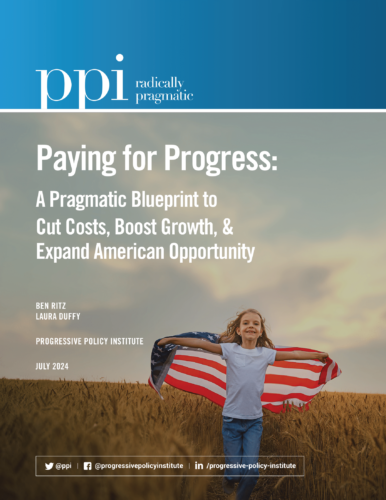WASHINGTON —Throughout his 2024 campaign, former President Donald Trump has made imposing a double-digit tariff on all imports and a 60% tariff on goods from China a central pitch to voters, and has even suggested replacing the income tax with tariff revenue. The Progressive Policy Institute (PPI) today released a critical new report, “It’s Not 1789 Anymore: Why Trump’s Backwards Tariff Agenda Would Hurt America,” authored by Laura Duffy of PPI’s Center for Funding America’s Future, which warns of the steep costs of Trump’s plans to impose taxes on all imports at levels not seen since the Great Depression.
In the report, Duffy draws striking parallels between Trump’s plan and the debates over and effects of historical tariff policies going back to 1789. She argues returning to tariff-heavy strategies would not only make it impossible to fund government spending commitments that have grown since the country’s founding, but would also harm downstream industries and greatly burden American taxpayers and workers.
“When the United States was much poorer and less developed, tariffs were one of the only feasible ways to collect revenue. But even as far back as 1789, leaders recognized the weaknesses of relying on tariffs as a basis of our tax system,” said Duffy. “Today, no developed country relies on tariffs as a major revenue source, and Trump’s tariff proposals would be fiscally irresponsible, economically destructive, and costly to American families.”
Duffy outlines four main problems with Trump’s tariff proposal:
- Inadequate Revenue Generation: Modern government spending levels cannot be supported by tariffs alone, which generate far less revenue compared to income taxes.
- Non-Transparency: Tariffs are complex and hidden, making them vulnerable to special interests and rent-seeking by domestic industries.
- Equity Concerns: Tariffs likely place a disproportionate burden on low-income households, which tend to spend more on imported goods.
- Economic Disruption: Tariffs raise costs for industries relying on imports and invite retaliation from other countries, leading to reduced production and lost jobs.
Because of these issues with tariffs, Duffy argues that the shift to tax income instead of trade was a success for progressive policy goals and the United States’ growing global leadership role alike. Instead of turning back the clock to a much earlier (and less prosperous) era of American history as Trump suggests, Duffy recommends the United States address its budget deficits and promote equity by shifting the tax code towards fairer and less destructive taxes like a value-added tax.
Read and download the report here.
The Progressive Policy Institute (PPI) is a catalyst for policy innovation and political reform based in Washington, D.C. Its mission is to create radically pragmatic ideas for moving America beyond ideological and partisan deadlock. Learn more about PPI by visiting progressivepolicy.org. Find an expert at PPI and follow us on Twitter.
###
Media Contact: Ian O’Keefe – iokeefe@ppionline.org







